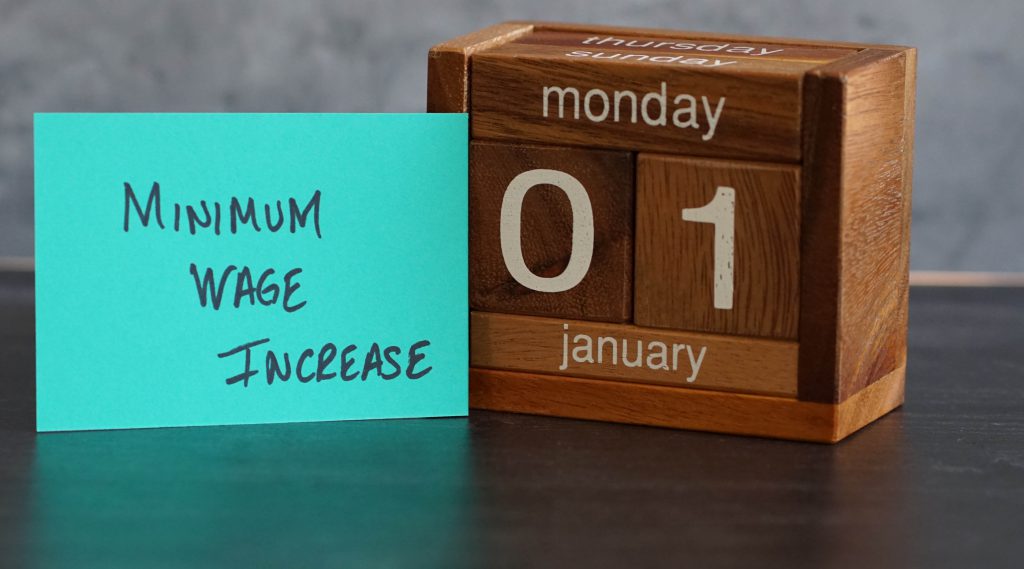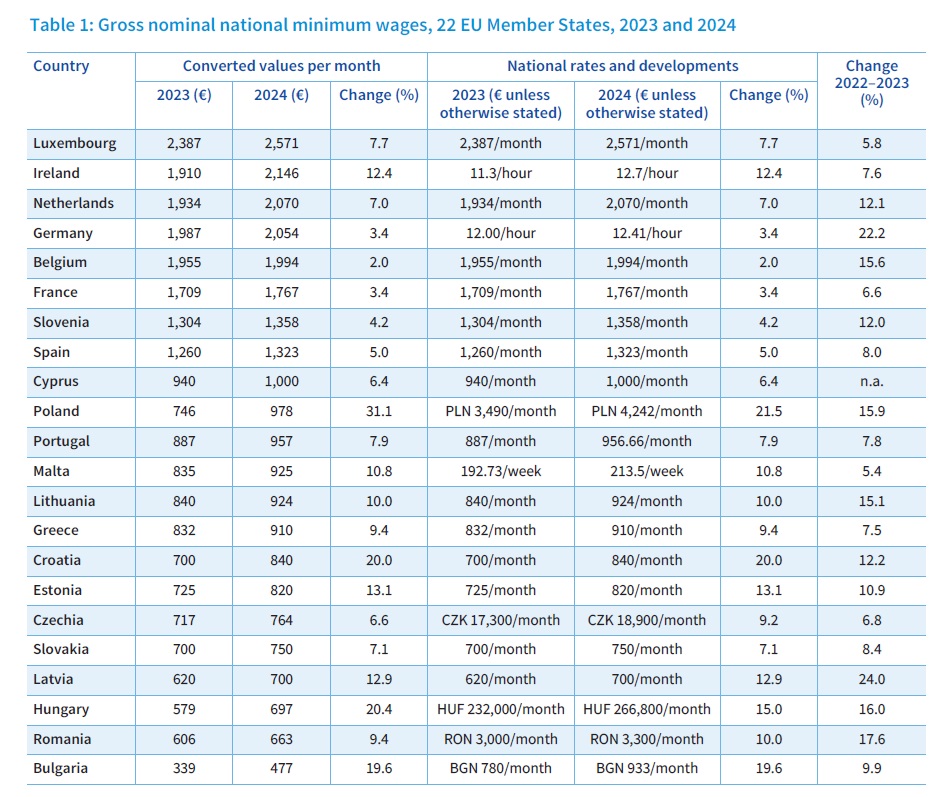Malta’s minimum wage stuck in 12th despite Low Wage Commission agreement

Despite a 10.8% increase in 2024, Malta’s minimum wage remained stuck in 12th place overall among EU countries having this minimum threshold by law.
Date published by Eurofound reveals that Malta’s minimum wage rose from €835 to €925 per month from 2023 to 2024. Compared to previous years the increase was significantly higher at 10.8%, as it did not include the cost of living allowance only, which was nonetheless at a record high of €12.41 weekly. The additional rise was the result of an agreement piloted by the Low Wage Commission.
A further analysis of the Eurofound report shows that the largest upward percentage adjustments were made in Eastern European countries, where the minimum wage is among the lowest. Poland had the highest percentage increase in 2024 with 31.1%, followed by Hungary (20.4%), Croatia (20%), Bulgaria (19.6%), Estonia (13.1%) and Latvia at 12.9%. The first country from Western Europe was Ireland where the minimum wage rose by 12.4%. Malta’s rise of 10.8% ranked eight overall.
Belgium propped the table with a 2% increase, followed by France and Germany (3.4%), Slovenia (4.2%) and Spain which placed fifth from bottom with a rise of 5%.
However, looking at the percentage increase alone might not give the true picture, as ultimately the issue boils down to pounds, shillings and pence. In this respect, Eastern European countries rank among the lowest, though in recent years the gap from the likes of Bulgaria, Romania and Hungary from the rest has narrowed down considerably. On the other hand, Luxembourg is still the leader with a minimum wage of €2,571 monthly, which is significantly higher than Malta’s media wage which is around €1,900. The top of the table features Ireland in second place (€2,146), Netherlands 3rd (€2,070), Germany 4th (€2,054) and Belgium 5th (€1,994).

Though Malta finds itself in 12th place overall among 22 EU countries having a statutory minimum wage, at par with Lithuania, it is much closer to the bottom than the top, as there are six countries below within a difference of less than €200 per week. In contrast, going up the table an equivalent number of places – 6 places higher – the difference is much higher at €842, with France ranked 6th with a monthly minimum wage of €1,767.
As a matter of fact, the report places Malta within a group of 14 countries having the lowest hourly rates with that in Malta being of €5.34.
UHM Voice of the Workers has repeatedly warned that increasing minimum wages along is a risky strategy as this will distort the wage relativity in the employment market. Instead, UHM believes that the best way forward is to channel the efforts toward unionisation of low-income workers, which in turn paves the way for collective bargaining. The latter is a much fairer tool and does not have long-term negative effects with respect to the relativity.
The full report can be downloaded here.
